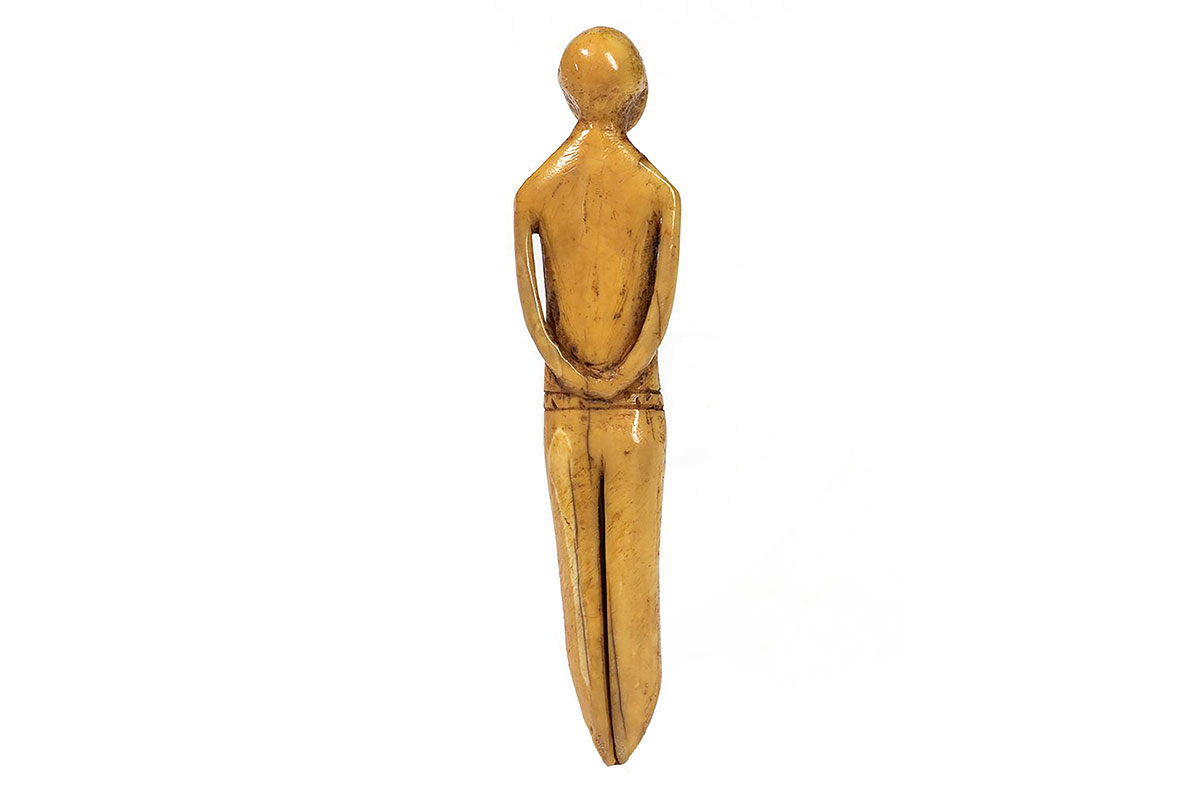Figure
Western Alaska
1200 - 1700 CE
marine mammal ivory
height: 4"
Inventory # E4335
Sold
PROVENANCE
Dr. John Schaeffer collection, Lake Monroe, FL
RELATED EXAMPLES
Wardwell, Allen. Prehistoric Eskimo Ivories. Dalton: Studley Press, 1992, pls. 25 and 26
This carving exhibits the relative stylisation of the human body common to most Thule human ivory figures (1200 - 1700 CE). Conceived symmetrically, the figure assumes a neutral standing pose. Emphasis is placed on the overall proportions of the body, the hands clasped behind the back. Precise fine line engraving across the waist might indicate loin cloth, while parallel running lines along the chest possibly relate to tattooing practices. The figure is exceptionally well preserved and has acquired a light honey brown patina resulting from soil mineralisation. Although no scholarly consensus as to the proper purpose or context of pre-historic ivories exists, it is likely that this fine figure relates to spiritual practices, mythology, social organisation and storytelling. Created more than 500 years ago, it is among the most enigmatic and endearing works created in Indigenous North America.





